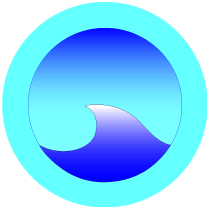

| Project
Reference: EVK3-CT-2000-00035
Start Date: January 1, 2001 End Date: January 1, 2004 Duration: 36 months |
Partially
funded by the European Commission programme entitled
Energy, Environment and Sustainable Development - EESD |
| The
extent to which the atmosphere represents an important pathway for various
pollutants and natural substances from Europe and North Africa towards
the Mediterranean Sea and subsequently affects its biogeochemistry remains
largely unknown. Some of these substances, such as lead, mercury and chlorinated
hydrocarbons, when carried into the sea by atmosphere are potentially harmful
to marine biological systems. Others, such as nitrogen species, phosphorus
and iron, are nutrients and may enhance marine producitivity. Atmospheric
inputs thus exert many different effects on the Mediterranean environment.
The ADIOS project aims at understanding the magnitude, timing and geographical distribution of atmospheric deposition and impact of selected pollutants, key elements and nutrients on the Mediterranean open sea, an ecologically sensitive marine environment.
ADIOS is a member of the IMPACTS cluster, a group of EU research projects focusing on pollution sources, transport, reactivity and impact on the contrasting marine ecosystems surrounding Europe. Click on the links (left-hand side) to learn more about ADIOS. You can also contact us directly with your inquiries. |